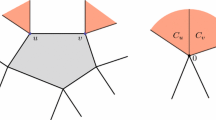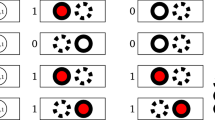Abstract
We show that there are simplex pivoting rules for which it is PSPACE-complete to tell if a particular basis will appear on the algorithm’s path. Such rules cannot be the basis of a strongly polynomial algorithm, unless P = PSPACE. We conjecture that the same can be shown for most known variants of the simplex method. However, we also point out that Dantzig’s shadow vertex algorithm has a polynomial path problem. Finally, we discuss in the same context randomized pivoting rules.
Access this chapter
Tax calculation will be finalised at checkout
Purchases are for personal use only
Preview
Unable to display preview. Download preview PDF.
Similar content being viewed by others
References
Adler, I., Karp, R.M., Shamir, R.: A Family of Simplex Variants Solving an m x d Linear Program in Expected Number of Pivot Steps Depending on d Only. Mathematics of Operations Research 11(4), 570–590 (1986)
Adler, I., Megiddo, N.: A Simplex Algorithm whose Average Number of Steps is Bounded between Two Quadratic Functions of the Smaller Dimension. Journal of the ACM 32(4), 471–495 (1985)
Amenta, N., Ziegler, G.: Deformed products and maximal shadows of polytopes. In: Advances in Discrete and Computational Geometry, pp. 57–90 (1996)
Avis, D., Chvatal, C.: Notes on Bland’s Pivoting Rule. Math. Programming Study 8, 24–34 (1978)
Borgwardt, K.H.: The Average Number of Steps Required by the Simplex Method is Polynomial. Zeitschrift fur Operations Research 26(1), 157–177 (1982)
Chubanov, S.: A strongly polynomial algorithm for linear systems having a binary solution. Math. Programming 134(2), 533–570 (2012)
Cottle, R., Pang, J.-S., Stone, R.E.: The linear complementarity problem. Academic Press (1992)
Dantzig, G.B.: Maximization of a Linear Function of Variables subject to Linear Inequalities (1947); Published in Koopmans, T.C. (ed.): Activity Analysis of Production and Allocation, pp. 339–347. Wiley & Chapman-Hall (1951)
Dantzig, G.B.: Linear Programming and Extensions. Princeton University Press and the RAND Corporation (1963)
Danzig, G.B., Ford, L.R., Fulkerson, D.R.: A Primal-Dual Algorithm for Linear Programming. In: Kuhn, H.W., Tucker, A.W. (eds.) Linear Inequalities and Related Systems, pp. 171–181. Princeton University Press (1954)
Edmonds, J., Karp, R.M.: Theoretical improvements in algorithmic efficiency for network flow problems. Journal of the ACM 19(2), 248–264 (1972)
Fukuda, K., Matsui, T.: On the Finiteness of the Criss-cross Method. European Journal of Operations Research 52, 119–124 (1991)
Goldberg, P.W., Papadimitriou, C.H., Savani, R.: The Complexity of the Homotopy Method, Equilibrium Selection, and Lemke-Howson Solutions. ACM Transactions on Economics and Computation 1(2), Article 9 (2013)
Goldfarb, D., Reid, J.K.: A Practical Steepest-Edge Simplex Algorithm. Mathematical Programming 12, 361–371 (1977)
Jeroslow, R.G.: The Simplex Algorithm with the Pivot Rule of Maximizing Criterion Improvement. Discrete Mathematics 4, 367–377 (1973)
Kalai, G.: A Subexponential Randomized Simplex Algorithm. In: ACM 24th Symposium on Theory of Computing, pp. 475–482 (1992)
Kalai, G., Kleitman, D.: Quasi-polynomial Bounds for the Diameter of Graphs and Polyhedra. Bull. Amer. Math. Soc. 26, 315–316 (1992)
Karp, R.M.: Reducibility Among Combinatorial Problems. In: Miller, R.E., Thatcher, J.W. (eds.) Complexity of Computer Computations, pp. 85–103. Plenum Press, New York (1972)
Karmarkar, N.K.: A New Polynomial-time Algorithm for Linear Programming. Combinatorica 4, 373–395 (1984)
Khachian, R.M.: A Polynomial Algorithm in Linear Programming. Doklady Akad. Nauk SSSR 244(5), 1093–1096; Translated in Soviet Math. Doklady, 20, 191–194 (1979)
Klee, V., Minty, G.J.: How Good is the Simplex Algorithm? In: Shisha, O. (ed.) Inequalities III, pp. 159–175. Academic Press, New York (1972)
Lemke, C.E., Howson, J.T.: Equilibrium points of bimatrix games. SIAM Journal on Applied Mathematics 12(2), 413–423 (1996)
Matousek, J., Sharir, M., Welzl, E.: A Subexponential Bound for Linear programming. Algorithmica 16(4-5), 498–516 (1996)
Murty, K.G.: Computational Complexity of Parametric Linear Programming. Mathematical Programming 19, 213–219 (1980)
Papadimitriou, C.: Computational Complexity. Addison Wesley (1994)
Ross, C.: An Exponential Example for Terlaky’s Pivoting Rule for the Criss-cross Simplex Method. Mathematical Programming 46, 78–94 (1990)
Santos, F.: A Counterexample to the Hirsch Conjecture. Annals of Mathematics 176(1), 383–412 (2013)
Smale, S.: On the Average Number of Steps of the Simplex Method of Linear Programming. Mathematical Programming 27, 241–267 (1983)
Spielman, D.A., Teng, S.-H.: Smoothed Analysis of Algorithms: Why the Simplex Algorithm Usually Takes Polynomial Time. Journal of the ACM 51(3), 385–463 (2004)
Tardos, E.: A Strongly Polynomial Algorithm to Solve Combinatorial Linear Programs. Operations Research 34, 250–256 (1986)
Savani, R., von Stengel, B.: Hard to Solve Bimatrix Games. Econometrica 74(2), 397–429 (2006)
Terlaky, T.: A Convergent Criss-cross Method. Optimization 16, 683–690 (1990)
Todd, M.J.: Polynomial Expected Behvior of Pivoting Algorithm for Linear Complementarity and Linear Programming Problems. Mathematical Programming 35, 173–192 (1986)
Ye, Y.: The Simplex and Policy-Iteration Methods Are Strongly Polynomial for the Markov Decision Problem with a Fixed Discount Rate. Mathematics of Operations Research 36(4), 593–603 (2011)
Zionts, S.: The Criss-cross Method for Solving Linear Programming Problems. Management Science 15, 426–445 (1979)
Author information
Authors and Affiliations
Editor information
Editors and Affiliations
Rights and permissions
Copyright information
© 2014 Springer International Publishing Switzerland
About this paper
Cite this paper
Adler, I., Papadimitriou, C., Rubinstein, A. (2014). On Simplex Pivoting Rules and Complexity Theory. In: Lee, J., Vygen, J. (eds) Integer Programming and Combinatorial Optimization. IPCO 2014. Lecture Notes in Computer Science, vol 8494. Springer, Cham. https://doi.org/10.1007/978-3-319-07557-0_2
Download citation
DOI: https://doi.org/10.1007/978-3-319-07557-0_2
Publisher Name: Springer, Cham
Print ISBN: 978-3-319-07556-3
Online ISBN: 978-3-319-07557-0
eBook Packages: Computer ScienceComputer Science (R0)





